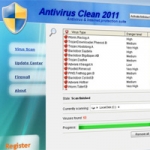Directive Blogs
Fake Antivirus
Have you ever been browsing the internet when out of nowhere your computer starts telling you that you are at risk or that you've downloaded a virus, and before you know it your screen is inundated with warnings and virus scanners? In most cases, this over-dramatic display is caused by a fake antivirus program. Today we're going to discuss how to prevent getting tricked by a fake antivirus attack.
What is a fake antivirus program? Well, it is exactly as the name would imply: It's a program made to look like antivirus. This harmful program is in disguise as a legitimate antivirus app. These fake antivirus programs use terminology like "you are infected with 52 viruses!" to attract users to install malicious software; it infects your computer by making you believe your computer is already infected. This social engineering is an effective and a dangerous method in infecting a computer. By having a user install the software, the privileges of the software are often escalated to the point where it can take control and have its way with your computer. You need to be able to recognize this danger in order to prevent yourself from making the mistake of downloading and installing malicious software. The first noticeable feature of a fake antivirus should be the name of the antivirus software. The first step is to know the correct name of your current antivirus, and remember to be weary of generic names for antivirus software like "Windows 7 Antivirus" or simply "Antivirus 2011". This may look safe, but that is the reason why this method of infection has become so widespread. Do not install any software that you do not recognize. Software labeled as an antivirus does not mean that software is actually an antivirus program. A label is all a program needs to encourage a user to download and install the program. Once on a computer, the software may tell you the computer is infected, but in reality the infection was cause by the very software claiming there is an infection. Common symptoms of an antivirus can be anywhere from invisible to completely disabling the user from using a computer. The most noticeable attacks can be loss of internet, the inability to access your legitimate antivirus, or disabling system functions such as the Windows Task Manager. If you find any of these symptoms, regardless if it is an antivirus, immediately contact your local tech support specialist. The threat of viruses can be substantial, and waiting to get them removed is never a good idea. Contact us at 607-433-2200 if your computer is acting a little strange or if software you don't remember installing is asking you to enter in your credit card information.



Comments